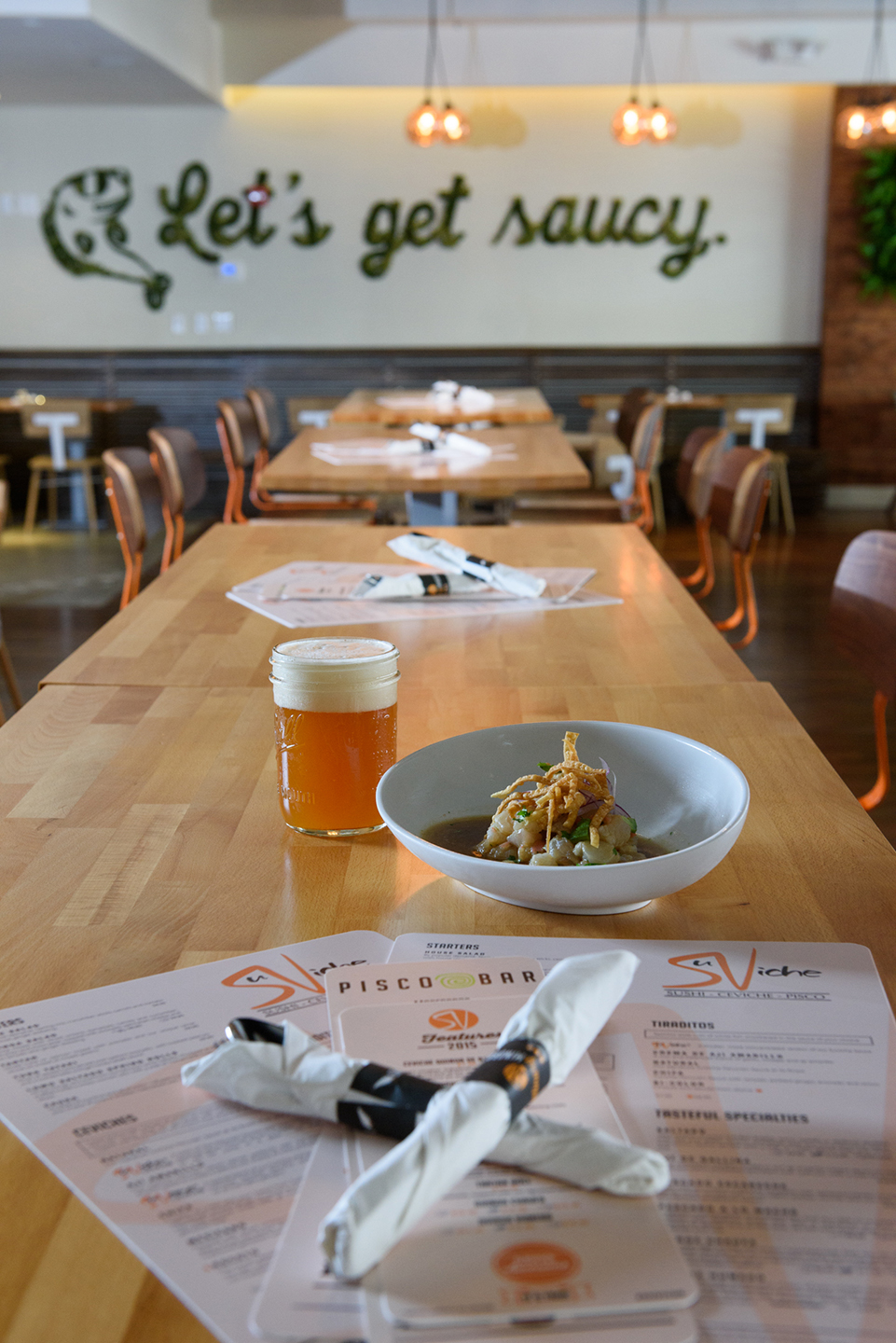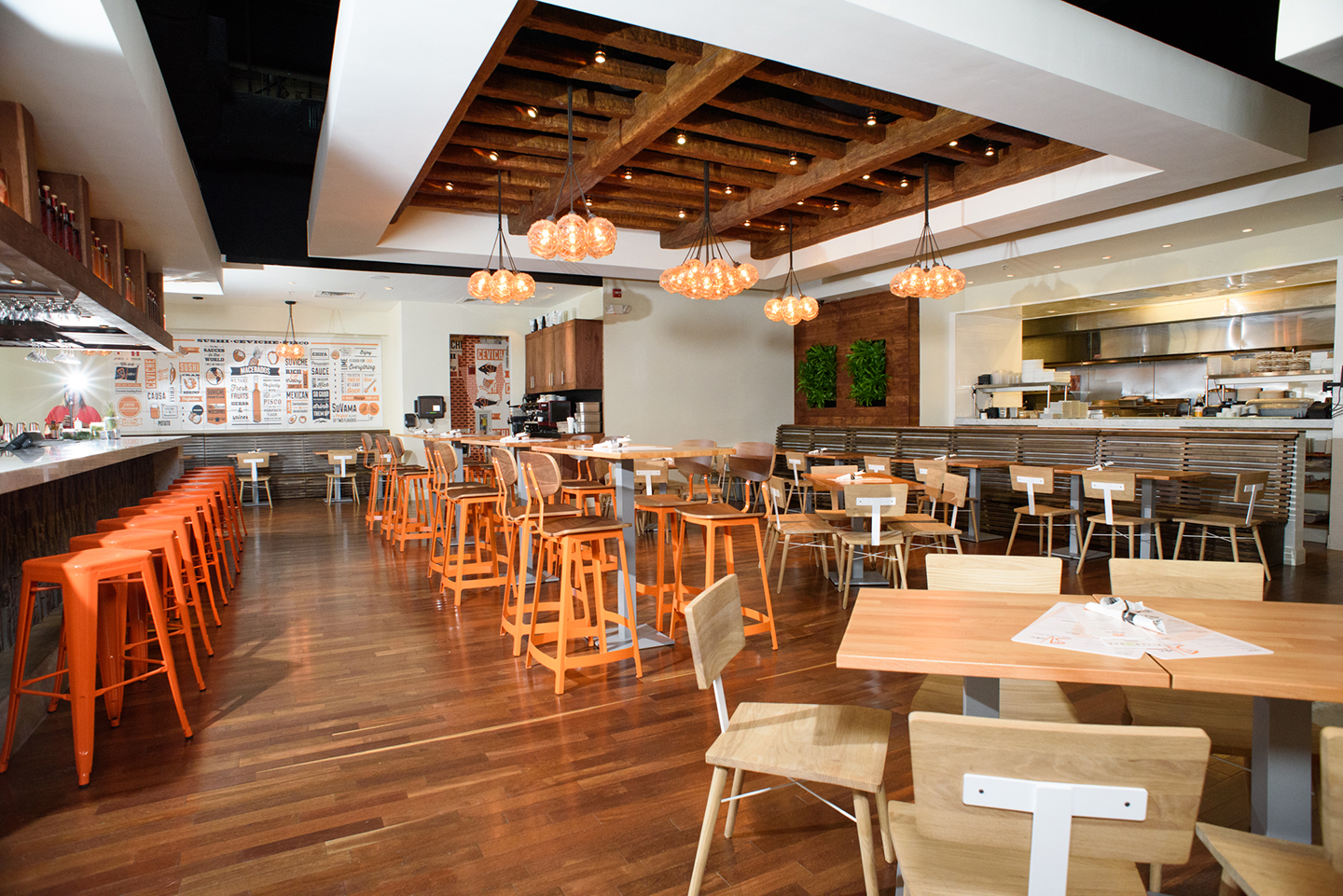Article
Japan + Peru = saucy success at Suviche
Co-owner Aliosha Stern discusses how the brand has combined Japanese and Peruvian cuisine to create a thriving fast casual brand.

September 29, 2016 by Matthew Harper — Intern, Networld Media Group
Innovation and growth are two of the most important factors of any successful fast casual restaurant, and SuViche, a concept that fuses Japanese and Peruvian cuisine, is doing both remarkably well, said Aliosha Stern, co-owner.
"Unlike other fast casual concepts with a limited menu and a simple operation, SuViche is a bit different as we offer a diverse menu and in some locations a full bar," he said. "This, of course, requires a more experienced operator."
 The brand, which launched in 2010, and has since reported that sales have increased year over year, will continue opening corporate-owned stores in South Florida and is now searching for operators in major cities on the East Coast, Stern said.
The brand, which launched in 2010, and has since reported that sales have increased year over year, will continue opening corporate-owned stores in South Florida and is now searching for operators in major cities on the East Coast, Stern said.
"In the long term, we will look to achieve a national and international presence," he said.
Stern, who set out to bring a "light, flavorful, high-quality and affordable food" to Miami, found the inspiration for SuViche in Peru's history with Japanese immigrants.
"Since the 1800s, a lot of Japanese immigrants arrived in Peru in search for gold, and as a result Peru’s culture — especially its cuisine — has been largely influenced by the Japanese," he said. "When I began thinking about opening a restaurant, I was looking to create a concept that offered both light and flavorful food, something that Japanese and Peruvian cuisines have in common. I realized this niche had not been filled by anyone in Miami at that time."
One of the most important features of the SuViche concept is the Pisco Bar, which sets apart SuViche as a fast casual restaurant with casual dining tendencies.
"Unlike traditional fast casual restaurants, our customers can order as they would at a regular bar, with bartenders or with their server," he said. "At first glance, it may seem as a regular bar, however, the difference is in our efficiency in processes and procedures, which tie back to the fast casual style of operation."
To discover more about SuViche's strategies for success, FastCasual conducted an in-depth interview with Stern.
FastCasual: How are you able to keep costs at a fast casual price point?
Aliosha Stern:This was definitely a challenge at the beginning when we didn’t really have the volume to get discounted pricing on many items. The focus here, however, has been on implementing lean practices to keep costs controlled. Of course, this has been a work in progress as we continuously keep innovating and implementing better processes and procedures to be able to provide great quality products at an affordable price point.
FC: What is the most expensive item and how much?
S: Pezcado a lo Macho with Seafood, priced at $17.95.
FC: Will you ever franchise?
S:Perhaps in the near future, yes. We already have everything in place to be able to franchise but we have not pursued this model yet because we want to find the right area development operators/partners in major U.S cities.
FC: How are sales?
S:Store sales have increased year over year since our inception in May 2010. As a company, we have more than doubled our sales in the last two years. We average $1,600 per square foot in sales.
$1,600 per square foot in sales.
FC: How do you measure success?
S:We measure our success not only in terms of numbers but by the level of satisfaction of our team members and our guests. We strongly believe in instilling a strong culture guided by our principles. It is very important to us that our guests are happy, and that our team members are happy with their work environment. This, in turn, has a direct effect not only in producing an above average net income percentage and higher sales per square foot, but it also lowers employee turnover rate and increases productivity. In addition, we do have a number of metrics that we track on a weekly and monthly basis.
FC: What is your prime marketing tool?
S:Even though we use a combination of marketing tools such as social media, promotions, non-traditional marketing and advertising, etc., we believe that our prime tool is our team members and our product. Our team members have direct contact with our guests and proudly represent our brand, which in turn generates widespread word of mouth. As mentioned before, we truly believe and focus on culture, which leads to high morale, happy team members and happy guests.
About Matthew Harper
Matthew Harper is in the Seminary Track program at Boyce College, and is nearing completion of his M.Div. at Southern Seminary He works at the campus writing center where he provides feedback and edits student papers. He interned in the editorial department at Networld Media Group for two years, and won a national award in a student short story competition. He attends and serves at Southeast Christian Church in Louisville and hopes to one day pursue ministry overseas.
 ChatGPT
ChatGPT Grok
Grok Perplexity
Perplexity Claude
Claude












